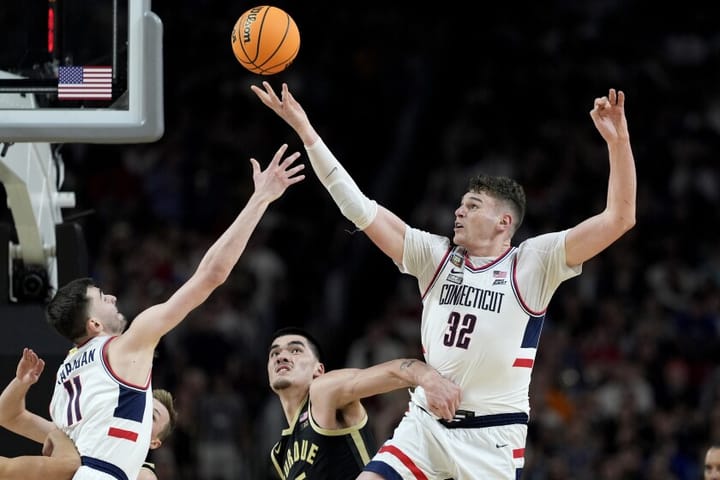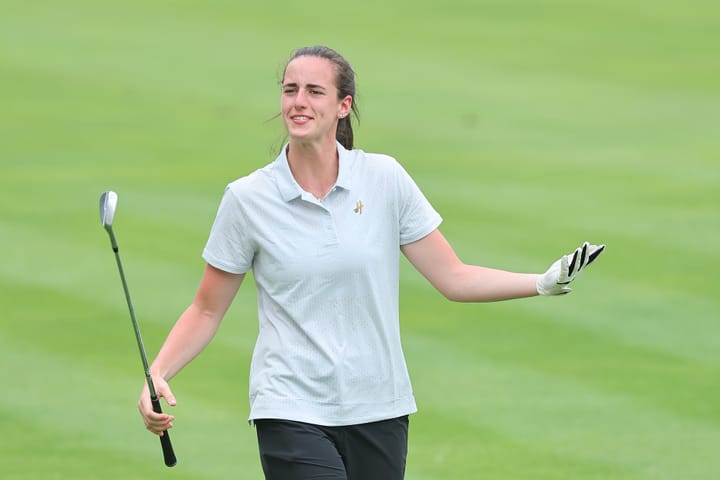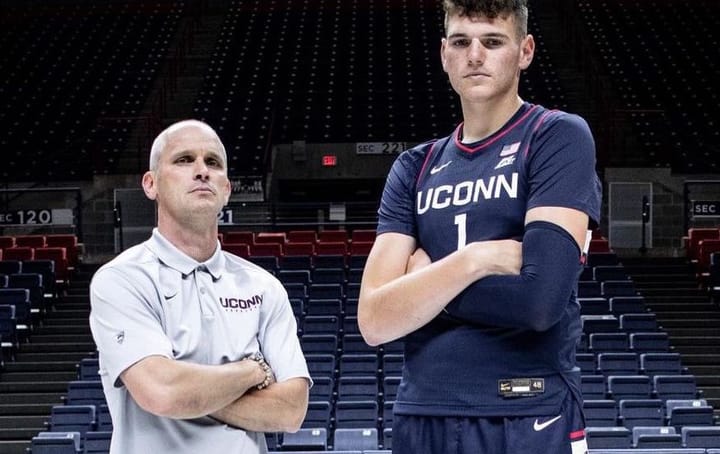CBB '24 - Week 2 Card & Leaderboard: Top Five Takedowns Abound
In which we debunk the Iga Swiatek Overnight Funds Rate, explain Robn's Raison D'Etre, and envision the Santiago Vescovi fine menswear collection
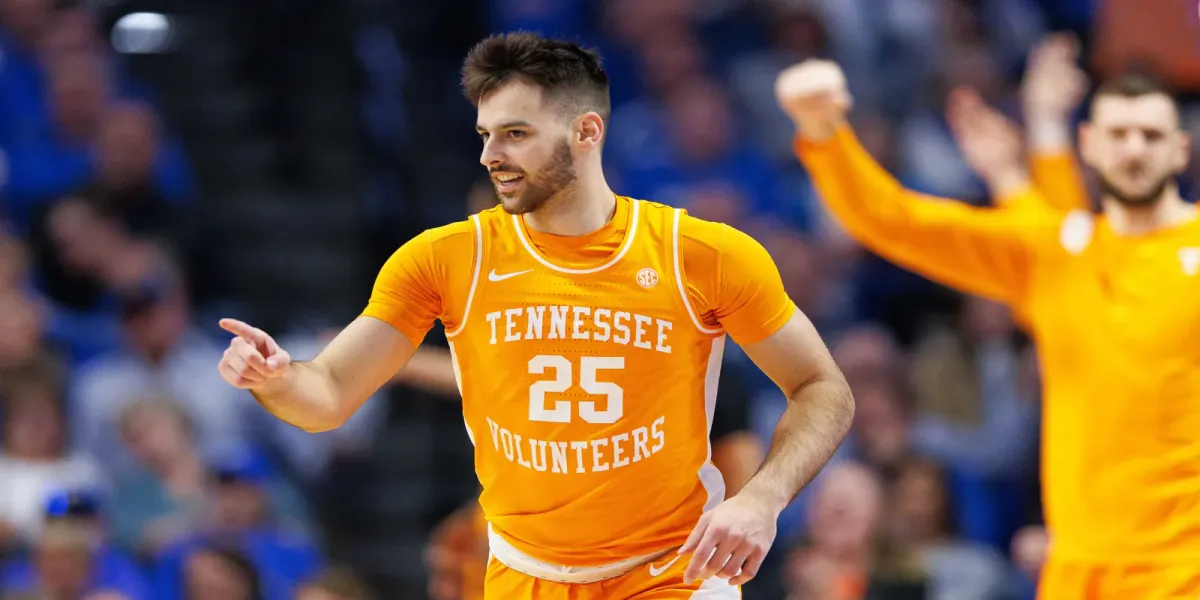
Top Five Takedowns Abound
Purdue, Houston, Kansas, Tennessee All Look To Bounce Back Saturday
- Robn's Raison D'Etre
- The Santiago Vescovi Fine Menswear Collection
- The Mistaken Allure Of The Iga Swiatek Overnight Funds Rate
- Can Mississippi State Keep It Going After Tennessee Takedown
Iga To Go Get A Bet Down
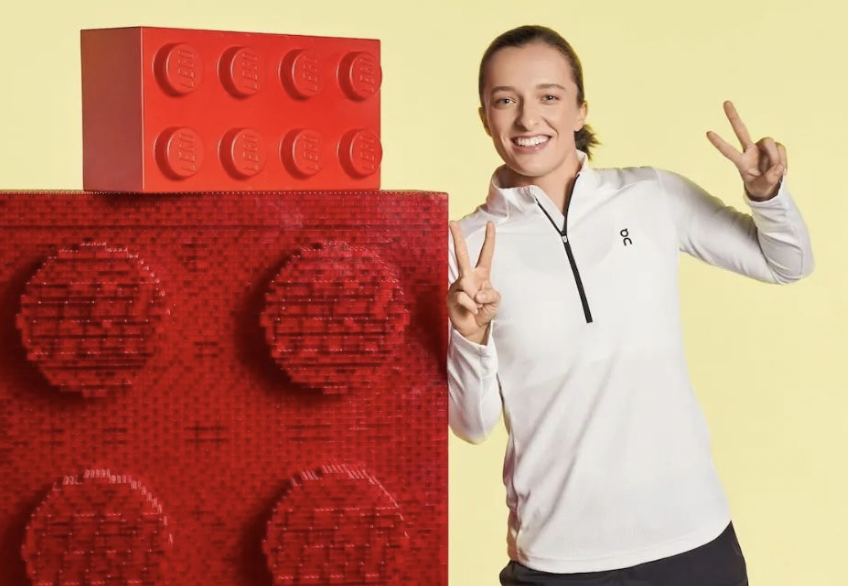
It was cold and dark in Las Vegas one year ago. I found myself there for none of the usual obligatory reasons, but vaguely voluntary ones I'll never truly understand.
The rooms and the flights were a little bit cheaper than normal. And it showed on the town's totalizer boards. Football was done. MLB Spring Training was a week away. It was a Monday and Tuesday, so golf was out. The NBA was off for its All-Star week. Outside of an oddly limited couple nights of college basketball and very random NHL, there were no sports to bet on.
Wanting to put a little bit down on something as a token of the trip, I settled before bed on performing a dumb and lazy experiment. Iga Swiatek was a heavy favorite in an early round match in the Dubai Duty Free Open. With the time difference, the match would take place while I was asleep. "Put my money in now, wake up in the morning, and watch it grow," I thought, satisfied with myself.
It seemed like a sure thing. And it was.
My $200 won $12.5, a 6.25% return. Take that, T-Bills.
A Robner who shall not be named, and who definitely did not give me Covid during the trip, was with me for part of this and endorsed the procedure as the "Iga Swiatek Short-Term Loan." We decided to tweak it to the "Iga Swiatek Overnight Funds Rate," which, honestly these days, is almost the same as the actual Federal Funds Rate.
Clearly not a diehard follower of women's tennis, I envisioned Swiatek at the time as a sort of demographic peer, a 33-ish-year-old having a late career swoon but on the southward gradient of the bell curve of her career. In fact, she is only 22, is the top ranked women's player in the world, and, worst of all, was born when the author was in high school.
I write for two purposes.
1) To state that even though it seems like a sure thing, eventually even Sweet Iga is going to crap the bed and so you can't roll your over your money on her each time into infinity and then walk into your money manager's office 12 months later, red-eyed and slurry, and demand to know why they couldn't do this with your hard-earned cash.
2) In this contest, fewer and fewer of you seem to be interested in this sort of, "well, at least I basically guaranteed some winnings" slow drudgery auto-roll fit for a slot machine.
Unlike the college football contest, in which you had a balance to protect and nurture, in college basketball thus far you're letting it fly.
The mid-week card had only 1.9 picks per contestant, the lowest average level ever recorded on a card.
This means we're seeing more 1,000-point picks across the board and fewer 100-here, 100-there little sprinkles. And the 1,000s aren't on the Iga-esque type of picks. They're usually on markets in the 0.9x to 1.1x multiplier range.
The more you all keep this up, the harder it's going to be for late joiners to chase their way into the Top 64 come March.
Player Markets, Brought To You By The Santiago Vescovi Fine Menswear Collection
The fist major city I ever visited was Vancouver, British Columbia. It was this weird mix of kind-of-still-Washington-state, and an admixture of what I assumed were Europe and Hong Kong. It was only 6 hours away - but there was this sense that it was like 6 days away, like other things were possible there. I was hooked.
On one trip, nearby the hotel we stayed at, there was this really expensive looking menswear store, patrolled by serious-looking olive-skinned men in suits as sleek as the ones on the mannequins. I was 9 years old. I remember asking my dad if we could go in.
Presented with the very small but extant chance that entering the premises could require him to spend money, my dad said no. I never ended up going into the store, even on future trips. I thought the store was called Santiago's, and envisioned that the men inside each went by that name.
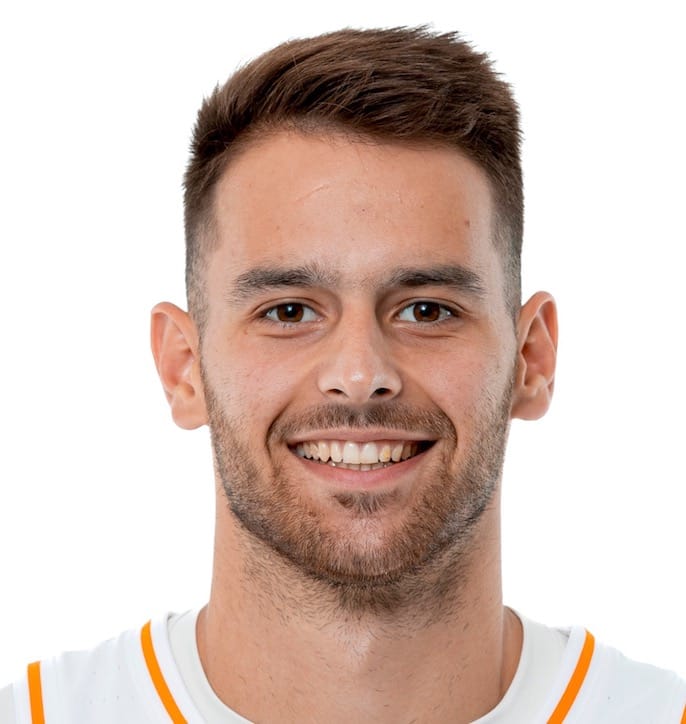
In reality the store was Salvatore Ferragamo (yes, I had some problems reading cursive, what of it?), a store I still have never gone into for fear of spending three mortgages on something an Italian financier would wear.
Two and a half decades later, along to the college basketball scene comes suave Uruguayan Santiago Vescovi, who, as it has already been independently determined by many over his five years in the sports, sounds like a purveyor of neckties, wingtips and silk hankies that you cannot afford.
He does not sound like a person in Tennessee, or like anyone associated with Rick Barnes, who has the disposition of an accountant in a medium-sized office who's been there 35 years and is increasingly tired with and confused by his younger co-workers.
Anyway, Vescovi (at least 3 threes), Pitt's Blake Hinton (at least 3 threes), Duke's Kyle Filipowski (at least 10 rebounds), UConn's Alex Karaban (at least 24 pts/reb/ast), BYU's Jaxson Robinson (at least 15 points), Baylor's Ja'Kobe Walter (at least 22 pts/reb/ast) and Xavier's Quincy Olivari (at least 19 points) were the objects of some of Robn's first-ever player prop markets.
Of the above markets, Hinton, Olivari, and Filipowski won. No one picked Hinton or Olivari, but shout out to newcomers Josh Pearl and Tevin Hall for making correct Filipowski picks.

The broader point is this: several games on several cards will have EXTRA player markets associated with them, and these EXTRA markets represent EXTRA ways to get in on the action.
But ...these EXTRA markets won't come out with the card right away. If you want peruse the EXTRA markets and potentially select a few before you submit your card, make sure to wait until closer to the deadline to submit.
A Long Waze To Go: Robn's Ontological Conundrum
Uri Levine, the founder of Waze and several other companies, wrote a book in 2022 called, Fall In Love With The Problem, Not The Solution.
Levine is of the class of people who lists their number of successful exists in their one-line biography. We don't want by invoking his book to verge into our long-eschewed territory of LinkedIn fortune-cookie, apocrypha-as-self-promotion.
But its premise is that by focusing on solving a problem, startups and founders end up identifying how they create value and foster their own personal values, respectively, which itself leads to the development of a broader purpose. A purpose-filled company or life is the aim to which we should aspire.
The book made us consider what problem Robn has fallen in love with solving, and what purpose it points to. Heady, perhaps premature stuff for an enterprise that in its last email ruined a children's fairy tale and linked to a story of a naked man in Bass Pro Shops.
We are a free-to-play sweepstakes that tries to emulate the best aspects of sports betting and seasonlong fantasy sports, and tries to miss the worst aspects.
We all know what the best aspects are, otherwise you wouldn't be participating or reading this email. So, what are the worst aspects that need to be missed (e.g. what are we trying to fix)?

Legal sports betting in the U.S. in 2024 is an experience that, increasingly 1) is isolative, 2) is successful at taking your money over the long term, 3) incentivizes customers to deposit more than they have previously, more frequently.
It is isolative because the vast majority of betting now happens online, where (unless you're in a 12-person seasonlong fantasy league with a bunch of people who now have three kids) you only interact with a monolithic tech stack and a screen that ultimately says back you either "win" or "lose." It is a hard activity to perform directly in concert with your friends. One of the detriments of convenience (see: Doordash Generation) is lack of interactivity with others. Are a bunch of people all going to gather together to watch a game, all have their phones out at the same time, logged into the same app, betting in unison on the same markets, and having a grand old time? No. They'll fire when they have a free 90 seconds between bouts of taking care of their kid and being distracted with something else shiny, probably also on a screen.
The industry is more successful than ever at taking your money over the long term because now that the waves of industry M&A and expansion have both passed, the last 7 or 8 sportsbooks standing, which will eventually dwindle to 4-5, are more focused than ever on increasing their profit margins so that they don't become one of those who "dwindle." It used to be that sportsbooks didn't really care that much about winning. This is because they were supported by brick and mortar casinos that always won infinitely more than books ever would. Now, sportsbooks, notoriously low margin, are their own buzzy standalone businesses. But NFL partnerships are hard to afford. That means that, however creatively they do it, they have to win more and you have to lose more than before. It is zero-sum. Books achieve this by limiting how much you can bet if you're a successful (winning) bettor over time. Or they offer worse payouts when you do win. Or they push you toward bets that have low likelihoods of winning.
And, lastly, the industry incentivizes customers to deposit more money because there's just so many damn things to choose from in the storefront, now. States are expanding the catalogue of sports to bet on. There are new DFS games living inside or next to sports betting apps. There are casino games in several states just a click away. There are pre-baked parlays served to you that somehow involve exactly the teams, sports and players that you like to bet on. These things mean you play more. And the conditions presented in the previous two points mean that you lose more. Which means that you have to fill up your balance tank more often than you did before. Which means you deposit more money on sports betting sites than you used to.
Perhaps we can address these problems by creating a product that brings the good stuff but where 1) customers literally can't deposit money at all because it's free to play (we will monetize in the future through one-time annual purchases of external goods or services), 2) no one's trying to take a greater percentage of customers' money over the long term because there is no "house" that plays against customers to take their money in the first place, and 3) the entire goal is eventually to foster the type of contestant-to-contestant engagement which makes the game (and Gen Z life in 2024) less isolative and more interactive, where free-to-play betting is just the escalator that takes you somewhere, not the final destination.
We've caught some confusion and flack for this last one, and rightfully so. It's vague. And it's hard to go back and check the receipts after the fact. There is little community outside of nicknames and a few random meet ups so far. We are 300 people in 23 states. But the more that that number grows, the more you can activate people in a geographic area to actually do things with other people, do things that affect positive change in communities.
Who is to say that a group of Robners in Oregon can't serve meals at serve at a soup-kitchen (FOR BONUS WINNINGS??!) the day before the Civil War, that North Carolinians can't raise money for cancer research with a 5k the morning that Duke-UNC tips off, or that the final four contestants in the contest tournament (and anyone else who wants to come) can't meet up for the Final Four, to watch games and make new friends?
Probably not a purpose fit for a VC or for Uri Levine. But maybe a purpose fit for those who see society through the classical liberalist lens as having been incorrectly incentivized to stop taking care of itself in favor of individual enrichment.
The Week 2 Card
Week 2 Card
Leaderboard After Week 1.5
The Leaderboard Through 1.5 weeks
Week 1.5 Graded Picks
Picks Themselves
Week 1.5 Picks
Graded
Week 1.5 Graded Results



